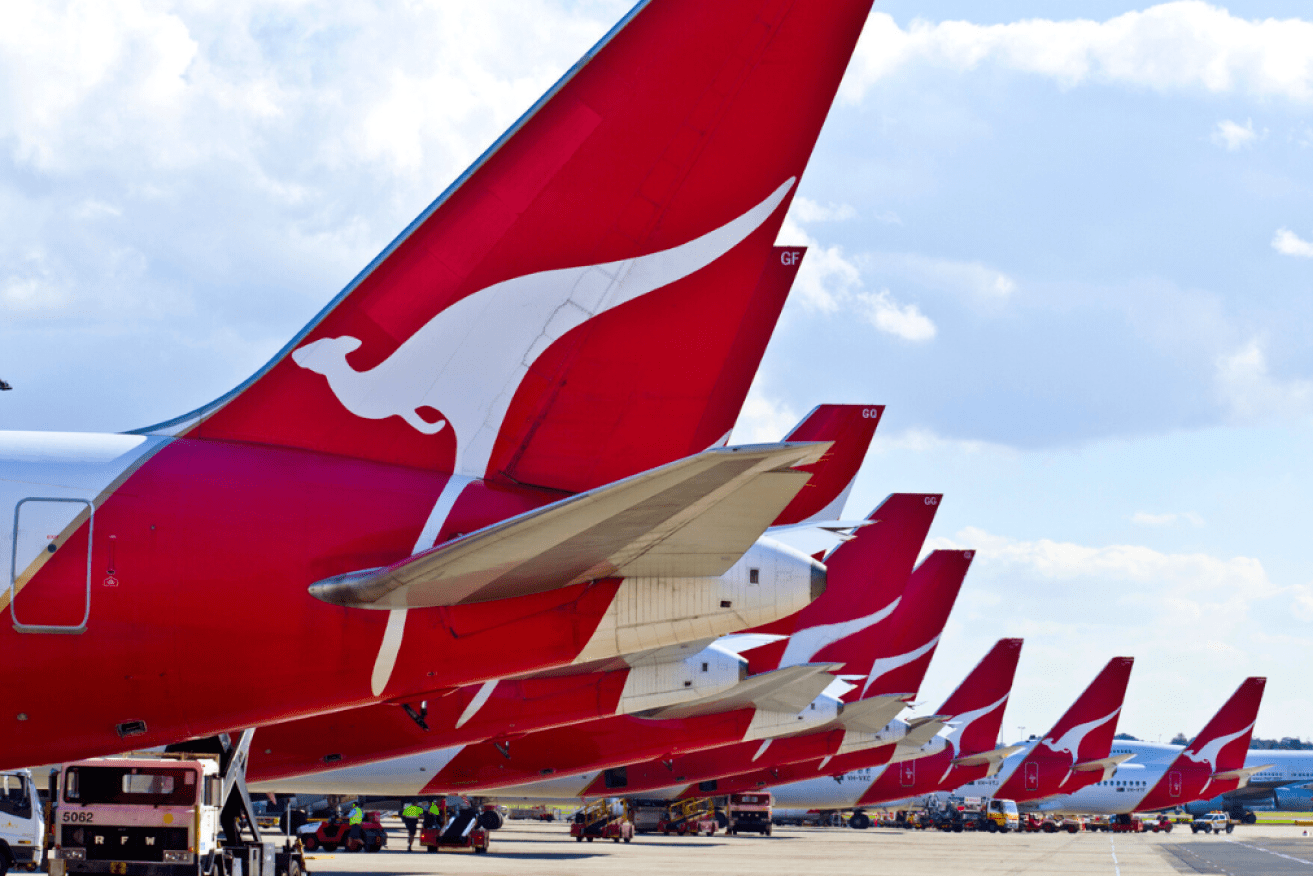Qantas critics point finger at Richard Goyder, chair of the board


Qantas has filed its defence to allegations it sold tickets for flights already cancelled. Photo: AAP
After a disastrous, scandal-filled week for Qantas, the focus has shifted from outgoing chief executive Alan Joyce to the airline’s chairman, Richard Goyder.
Amid the widening scandals engulfing the national carrier, there are questions about whether Mr Goyder and his fellow board members have lost focus on Qantas customers in favour of shareholders.
There is even a suggestion that Mr Goyder, who also chairs the AFL and Woodside Petroleum, does not have the time to lead the recovery for Qantas.
Helen Bird, a leading corporate governance expert from Swinburne Law School, said Mr Goyder should face questions about whether he could “actively give as much interest as might be needed at the moment”, given his other roles and the depth of problems for Qantas.
“Not because he’s incompetent, but because anyone would say there is a limit to how much anyone can be effective when you’ve got so many jobs to do,” she said.
“At a time in which I think some major attention needs to be paid at Qantas, maybe there is a reason to consider whether we need a new chair to take that role.”
Under fire
Qantas has come under fire this week on a number of fronts.
There have been questions about its role in the Albanese government’s decision to block Qatar Airways’ request for increased landing capacity at Sydney Airport; the airline’s continued poor customer service; holding hundreds of millions of dollars in travel credits, and for selling seats on cancelled flights.
Most of the anger has been directed at Mr Joyce, who was grilled in Senate estimate hearings and in the media.
Ms Bird said while Mr Joyce made the difficult decisions, the Qantas board had “absolutely backed him right through and never questioned any of the suggestions he’s made”.
She questioned whether the board had taken enough responsibility for the plunge in the airline’s reputation.
“It has a very well-regarded chairman, but that chairman has never for a second wavered in his support of the current CEO,” Ms Bird said.
“The conclusion to be drawn here is that the board and the chair consider that he’s doing exactly what he should be doing and no more.”
The board
Mark Humphery-Jenner, associate professor of finance at the University of NSW, said the Qantas board structure – with six independent directors plus Mr Joyce and Mr Goyder – could create issues.
“A number of them don’t have any aviation experience, and with what went on with Qantas selling tickets to flights that had already been cancelled, that’s the sort of thing that can escape the attention of some without that experience,” he said.
“The institutional investors who are investing in Qantas, they’re probably not particularly pleased about the reputation it has with customers, but they’re probably accepting of its stock performance.”
Mr Goyder has also been criticised for his role at the AFL due to the messy response to the Hawthorn Indigenous player scandal, the drawn-out search for a new CEO, a lack of football knowledge on his board and the failure to fill vacancies.

Richard Goyder (right) has been criticised during his time as AFL chairman. Photo: AAP
The money
Qantas has just posted a record profit, which was hard to reconcile when coupled with poor service and high ticket prices, Ms Bird said.
That was one reason Australia “should have gone and got shares” in the airline when it claimed $856 million in JobKeeper handouts during the pandemic, she said.
“They made it viable to continue and it was important to do so, but no one thought about accountability or about how we’re going to make sure that money was used properly and if it’s not needed, it gets returned,” she said.
“We all have a vested interest in how this turns out because we’ve funded it and are, by default, taxpayer shareholders.”
Ms Bird said there were also questions about whether Qantas would consider the damage to its reputation when it paid out executive bonuses, and whether the Australian Consumer and Competition Commission’s legal action against the airline will create an even worse public perception.
“If regulatory enforcement is commenced against Qantas, that ought to be a strike against the performance of all the major executives,” she said.
When incoming Qantas CEO Vanessa Hudson takes over from Mr Joyce in November, she will be able to present herself as a clean break after her predecessor takes the blame for unpopular decisions, even if the board remains relatively unscathed.

Incoming CEO Vanessa Hudson with Alan Joyce. Photo: AAP
Mr Humphery-Jenner said even if Ms Hudson agreed with decisions made by Mr Joyce and the board, she’d be best served by “appearing to sympathise with customers”.
“It’s in the shareholders’ best interests to let the travel credits expire, it would be in the company’s best interests to avoid competition and it would be in the company’s best interests to see tickets to flights that have already been cancelled,” he said.
“The issue is that in an ordinary market, there’s ordinary competition and all of those bad decisions would result in customers leaving the brand. In this situation, there are fewer alternatives.”








